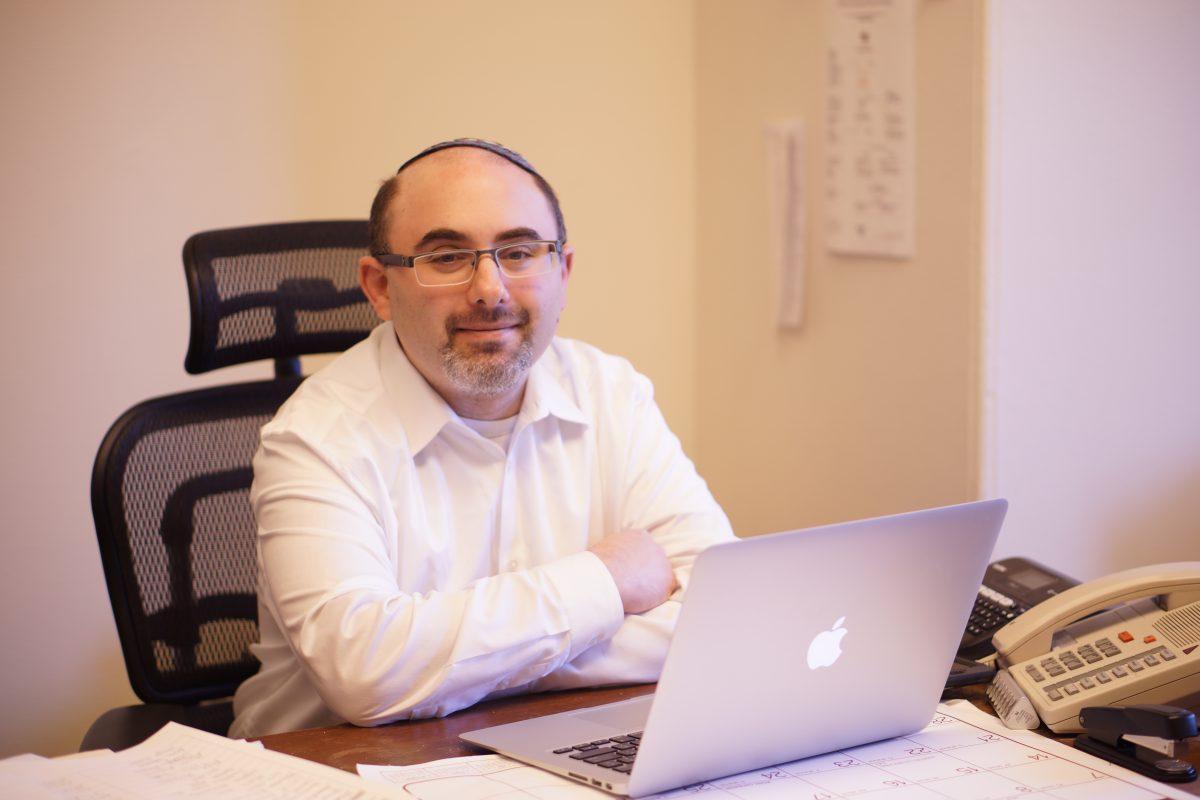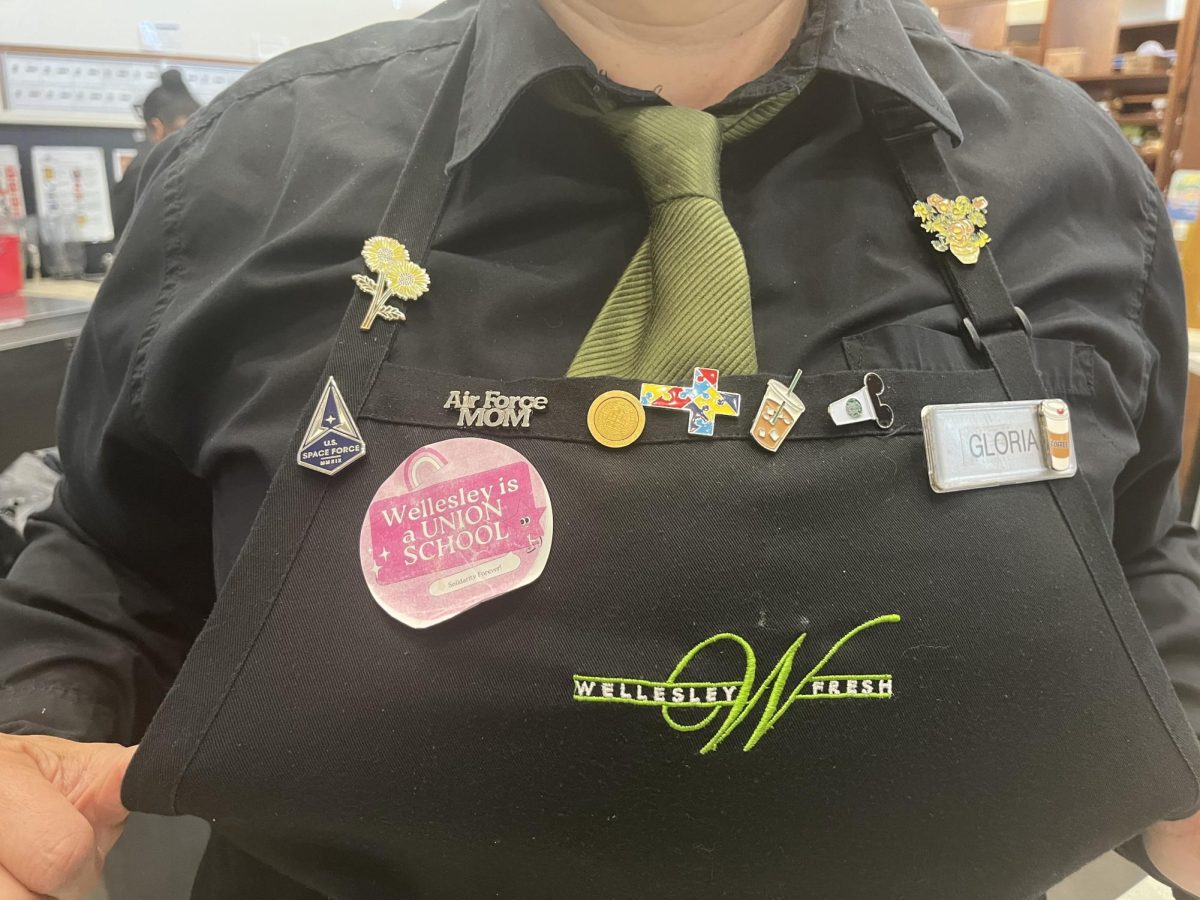On Feb. 2, an external review committee, comprised of three rabbis—Tuft University’s Jeff Summit, Colby College’s Rachel Isaacs (Wellesley class of ‘05) and former Wellesley Hillel co-president Carolyn Braun, class of ‘79—met with Jewish students on campus to discuss the state of the Jewish community at Wellesley. Wellesley College President Paula Johnson commissioned a review of Jewish life in anticipation of the search for a new rabbi, who will be the college’s fifth hire in the past four years.
Yona Levin ’18 says that there have been four changes in Jewish administration in the three-and-a-half years she has been at Wellesley, which has caused many people to leave Hillel altogether.
“My first semester, there were two people [leading Hillel], and they disappeared halfway through the semester, and no one found out why,” Levin said. “I found out later that one of them was fired while she was at her mother’s funeral. She was called and told not to come back. And then, it was just interim people, and then people who were supposed to be permanent and weren’t,” she explained.
Dozens of Jewish students—including individuals affiliated with Hillel and students from the Palestinian activism group Jewish Voice for Peace (JVP)—met with the review committee in the Hillel lounge to discuss their hopes for what Jewish life on campus should look like in the future.
“The goal of [the review] is to have people who have expertise in the field, from outside the institution, to come in and to listen deeply to the community…and to submit a series of recommendations,” said Dean of the Office of Religious and Spiritual Life Tiffany Steinwert.
Jewish chaplains have always played a dual role on campus, both as the only on-campus Jewish religious leader and also as the director of Hillel, the only recognized Jewish organization on campus. Hillel is affiliated with the multi-campus association Hillel International and has, over the past several years, repeatedly come into conflict with the Wellesley chapter of Students for Justice in Palestine.
This has left many Jewish students feeling as though they have to pick a side in the Israeli-Palestinian conflict in order to be included in any part of the Jewish community.
Rachel Korkodilos ’20 and Sofie Werthan ’18, student leaders of JVP, expressed feelings of alienation in an emailed statement to The Wellesley News: “Because of Wellesley’s ties to Hillel International, Jewish life here is innately politicized and does not allow for the pluralism that is a part of the Jewish community at Wellesley. [The] Jewish community is changing and Jews, especially here at Wellesley, have views that do not align with Hillel’s. This results in a significant portion of the Jewish community being alienated and isolated from the community that is supposed to support them.”
Levin said, “The alienation is what has developed out of the environment of the past few years, but what Hillel and this search is working towards is bringing people together and leaving that attitude of divisiveness behind.”
Miriam McNerney ’21, a Hillel e-board member, says that to her, the politics of Israel and Palestine are far from the primary issues that Hillel faces. “I think there are students who might take issue with Hillel International’s stance on Israel, but as far as Hillel on campus, members would be happy to have Jews with a variety of political opinions and backgrounds come to events,” she said.
Additionally, issues such as difficulty in getting time off for Jewish holidays and repeated oversights regarding kosher laws in Pomeroy dining hall are things the community needs to deal with. “I think the issues that Hillel is facing right now aren’t just tension between JVP and Hillel,” she explained. In fact, she says, Hillel is a space in which people tend not to talk about politics. “As someone who actively attends many Hillel events, it’s not a very political space. We’re more focused on providing a spiritual and cultural space for Jewish students on campus,” she said.
This stands in sharp contrast to how Levin saw Hillel’s role three years ago when she arrived on campus.
“A lot of the students who were already involved saw their role, and Hillel’s role, as being against political groups, or for political groups, rather than being a religious organization,” she explained. This is not what she wanted out of Hillel. “What I was looking for was a place to go to services, and maybe learn Yiddish. I was looking for a religious center and education, and there was really none of that,” she said.
This year, however, things in the Jewish community might be changing—both in terms of how leadership is structured and in terms of intra-community dialogue. At the student meeting with the review board, the idea of creating two separate job postings for Hillel director and rabbi was floated, and most of the students in the room raised their hands to support that proposition. “The most immediate goal of the review is to help us think about what structure the full-time rabbi position ought to look like,” Dean Steinwert said.
In addition, although Hillel International’s Standards of Partnership expressly bar chapters from partnering with organizations that “delegitimize, demonize or apply a double standard to Israel,” or “those who support the BDS (boycott, divestment, and sanctions) movement,” there have been several events this year that members of both Hillel and JVP have attended. Most recently, the “Resetting the Table” seminar Hillel sponsored earlier this semester—aimed at creating productive dialogue within the community—was attended by students affiliated with both organizations. In addition, Hillel is bringing Brad Hirschfield, a rabbi who specializes in facilitating conversations about difference, to speak on campus this spring.
Interim Rabbi Steven Edelman-Blank hopes that, as a result of this review, the Jewish community on campus will become less fractured. “I’m hoping for more stability and more sense of community and of a sort of collective feeling of being together, ” he said.






